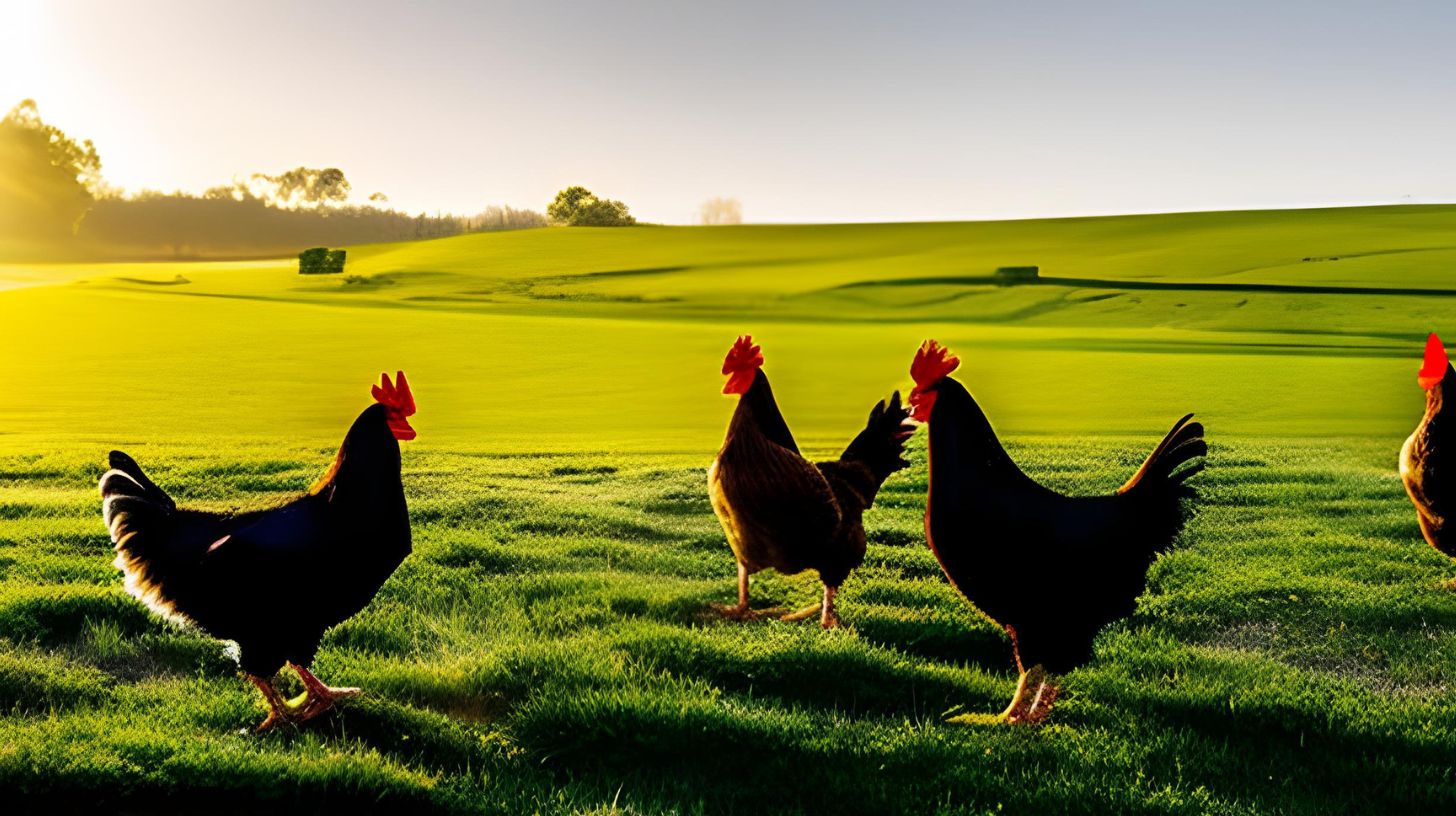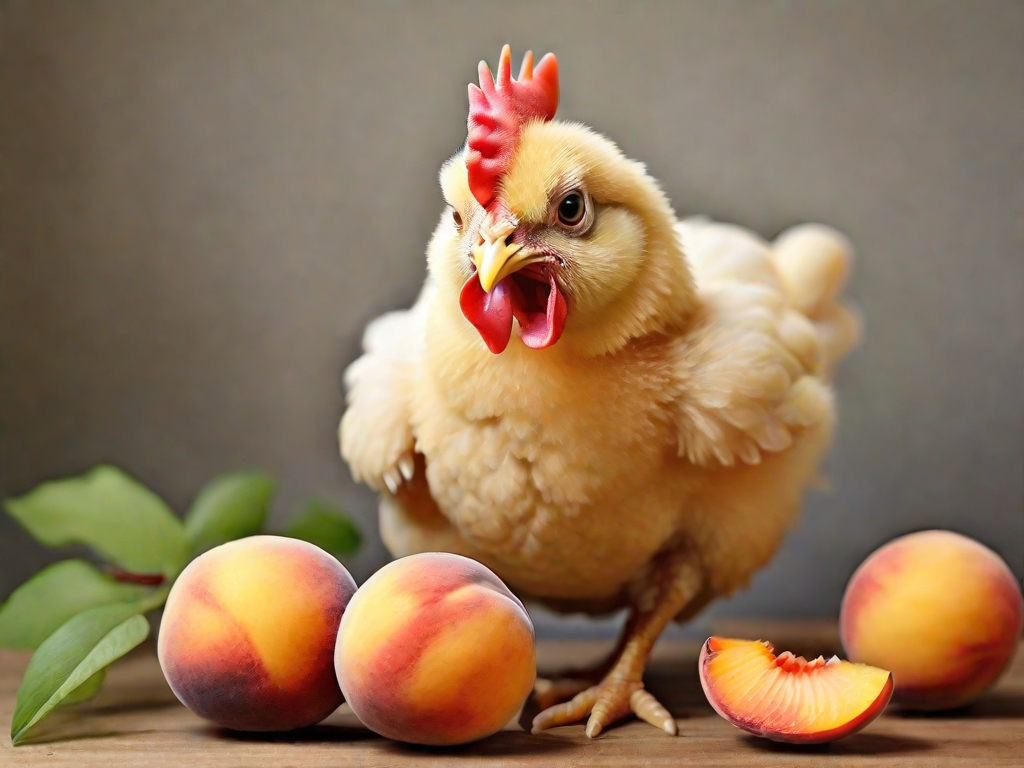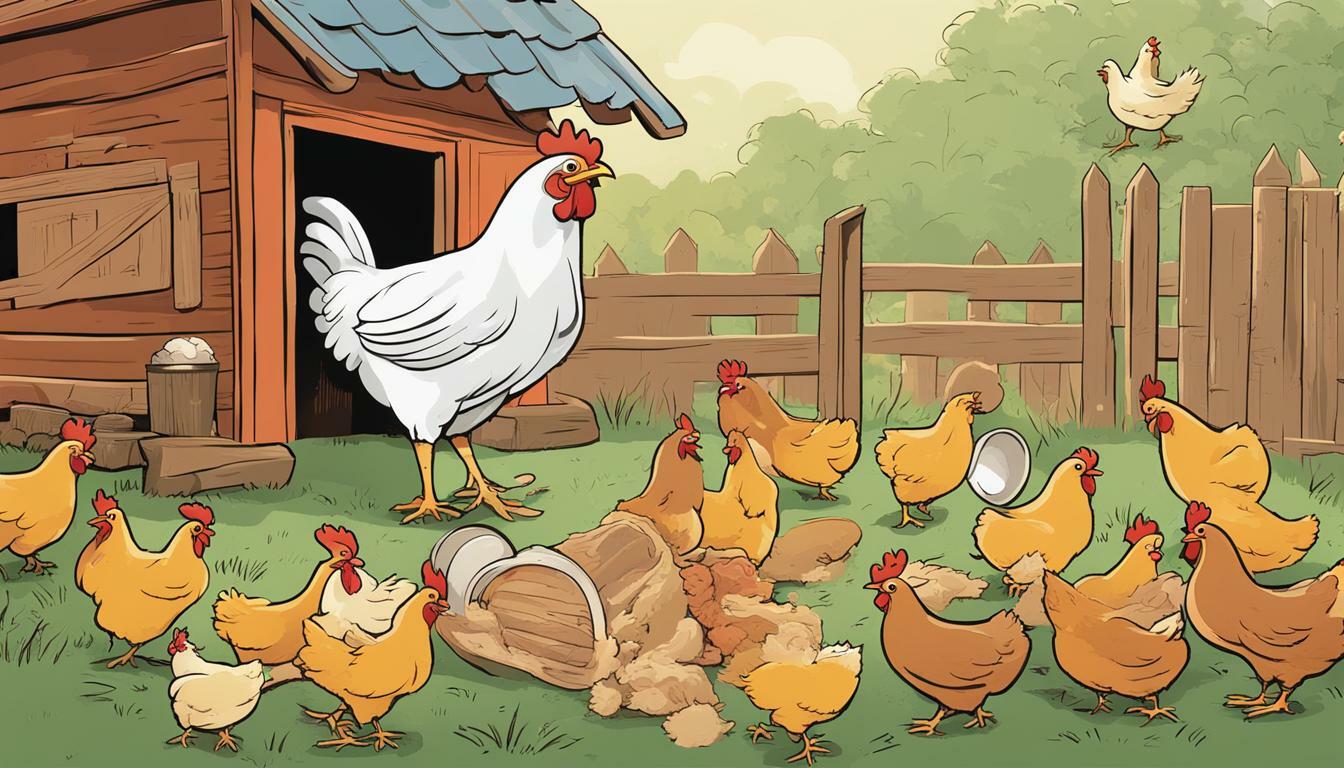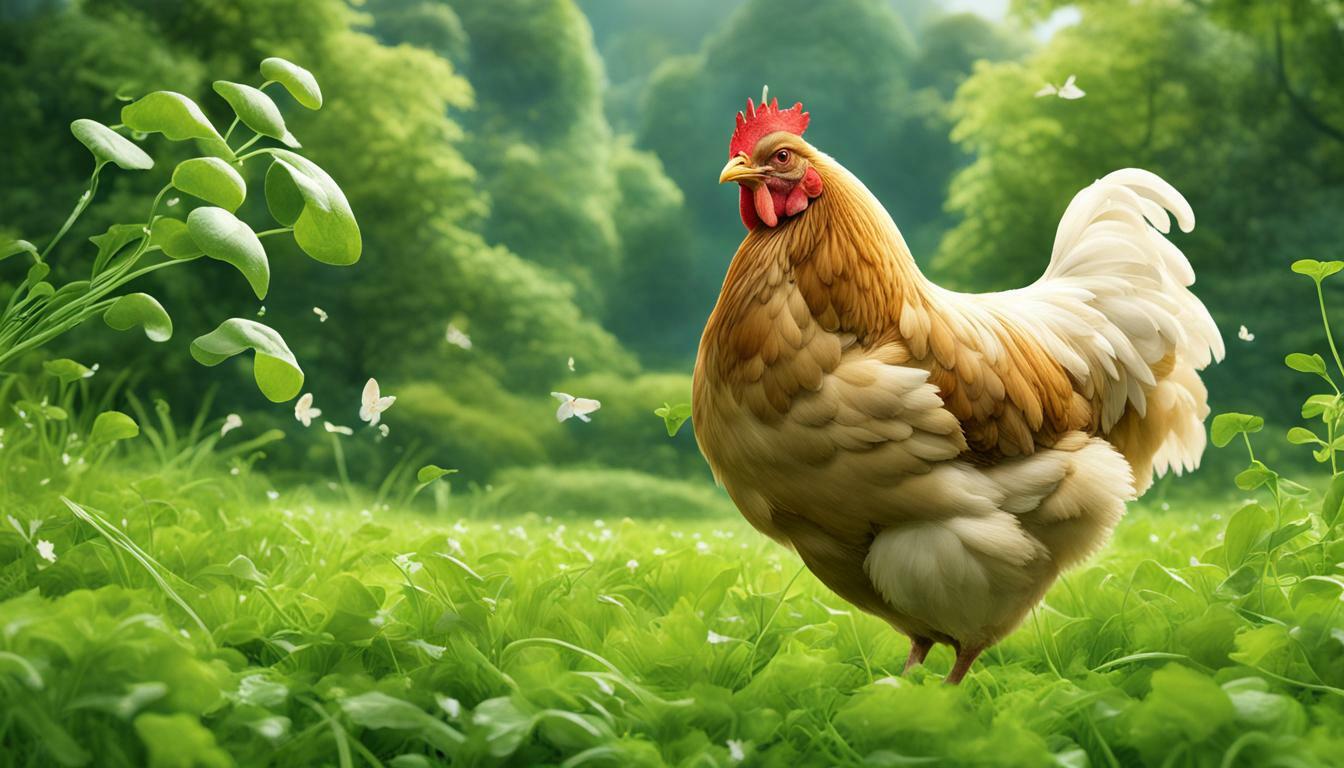Why Do Chickens Make Noise in the Morning?

Table of content:
- Typical Morning Chicken Noises
- Why Do Chickens Make So Much Noise in the Morning?
- Typical Timing of Chicken Morning Noises
- Typical Duration of Morning Chicken Noises
- Why Do Some Roosters Crow All Day?
- Can You Stop Roosters from Crowing in the Morning?
- Why Do Hens Cluck and Cackle in the Morning?
- How to Handle a Rooster Crowing in Your Urban Backyard
- Final Thoughts
If you live near a chicken coop or have backyard chickens of your own, you’re likely familiar with the chorus of clucks, crows, and cackles that often greet the sunrise. While this dawn noise may simply seem like a nuisance, there’s actually a lot more going on when chickens get vocal first thing in the morning.
Typical Morning Chicken Noises
Chickens make a wide repertoire of sounds. However, there are a few key noises that tend to peak in frequency and volume early in the morning when the sun rises. These include:
The Rooster’s Crow
The iconic and unmistakable cock-a-doodle-doo is a rooster’s way of announcing the new day. Crowing is also used to establish dominance over the flock and can be seen as a warning signal to ward other roosters away.
Roosters don’t actually need to crow. They typically start around puberty and do so in response to cues like:
- Increasing daylight
- Presence of hens
- Competition from other roosters
A rooster may crow any time of day but the dawn chorus is often the loudest and longest.
Hen Clucking and Cackling
Like roosters, hens also vocalize more as the sun comes up. Their happy clucks and excited cackles are a sign they are ready to start their day.
Mother hens may cluck to gather and protect chicks. Hens also cluck to communicate things like:
- A food discovery
- Nesting area readiness
- Distress or danger
Chick Cheeping and Peeping
Chicks aren’t exactly silent sleepers. Their cheeps and peeps start from inside the egg up to a week before hatching. After hatching, chicks peep frequently to bond with and attract their mother.
As chicks get older, the peeping becomes less frequent. But you may still hear bursts of vocality around feeding time or if chickens get separated from the flock.
Why Do Chickens Make So Much Noise in the Morning?
Now that we know the types of chicken noises in the morning, let’s explore some of the reasons behind this dawn chorus in more detail.
Rooster Crowing as an Alarm Clock
One of the main reasons roosters crow at first light is to act as a natural alarm clock for the flock. Their crows signal the hens to wake up, become active, and start looking for food.
In the wild, this morning announcement helps ensure chickens take advantage of the full day to forage while predators are less active. Waking at dawn and roosting at dusk provides safety for the flock.
Even in domesticated chickens, this ingrained biological clock remains. Those first rooster crows trigger a flurry of instinctual chicken activity responsive to light/dark cycles.
Circadian Rhythms and Hormones
Both roosters and hens are influenced by circadian rhythms that sync their bodies to day/night cycles. At dawn, increased daylight triggers hormonal changes that promote alertness, activity, and vocalizations.
Here are some key chicken hormones that fluctuate in the morning:
- Cortisol increases, priming chickens for activity.
- Melatonin decreases as chickens become less sleepy.
- Reproductive hormones like estrogen, progesterone, and testosterone rise, increasing mating behaviors like crowing.
These hormonal shifts happen automatically in response to environmental light cues. So chickens naturally become more vocal and active in the morning whether or not humans are around to hear it!
Waking the Rooster
While roosters serve as alarm clocks for hens, what actually prompts the rooster to start crowing each morning?
Roosters also seem to respond to environmental triggers that act as a snooze button, signaling it’s finally time to greet the day. Two key rooster wake-up calls include:
Increasing Light
As daylight approaches, roosters can sense subtle changes in light intensity even before the sun peeks over the horizon. This activates their circadian rhythms and gets their crowing clock ticking.
Predawn Noise
Studies show predawn noises from things like owls hooting, songbirds singing, cars driving by, or even a rattling feed bucket can help trigger a rooster’s first-morning crow.
In a sense, roosters are double-checking that the day has indeed begun before sending out their own daily announcement.
Establishing Dominance
For roosters, crowing isn’t just about waking the flock. It’s also how roosters compete for dominance and attract mates.
Crowing loudly and frequently advertises a rooster’s strength, virility, and control over the flock. His perfect perch adds to the effect.
Subordinate roosters may hesitate to crow in the presence of a dominant rooster. But once the alpha rooster is removed, suppressed crows quickly fill the vacant airspace.
Since multiple roosters may be vying for control, crowing also helps maintain distinct territories between roosters as they warn competitors to stay away.
Calling the Flock Together
In addition to waking the flock, chicken vocalizations help regroup chickens after a night on the roost.
Rooster crows and hen clucks reinforce flock bonds. Chickens able to hear but not see each other can reunite through call and response vocalizing.
Mother hens also cluck to train chicks to come running at their signal. And even independent chicks peep upon becoming separated from the flock.
So morning chicken chatter helps gather the flock to safely start the day together.
Locating Food
Hens cluck excitedly upon finding a tasty treat like fresh greens, seeds, or insects. This food call acts as an invitation to flock mates to come share the bounty.
Roosters may also have food calls but tend to leave the majority of foraging vocalizations to the hens.
Morning foraging commotion helps ensure every hen gets a chance at prime nutrition after the overnight fast. This sets the flock up with the fuel needed to be active and productive.
Bonding and Well-Being
On a social level, morning vocalizations help strengthen bonds between roosters, hens, and chicks.
Hens may cluck contentedly as they groom roosters. And chicks peep consistently for several weeks to identify with their mother.
Morning noise from chickens overall signals happiness at the continuation of flock friendships into another day.
Typical Timing of Chicken Morning Noises
Now that we know why chickens make so much noise to greet the morning, what’s the typical timeline?
While rooster crows can be heard at any time of day, on average most roosters initiate crowing about 2 hours before daylight. However, age, season, and genetics can all influence this timing.
Here’s a rough timeline of common chicken vocalizations as the sun comes up:
- 2-4 hours before sunrise: Roosters begin first sporadic crows which increase in frequency over time
- 2 hours before sunrise: Frequency of rooster crows increases; hens may begin soft clucking on roost
- 30-60 minutes before sunrise: Rooster crowing peaks in both volume and consistency; hens add excited cackling
- At sunrise: Full dawn chorus reached; all roosters crowing, hens clucking and cackling loudly; chick cheeping and peeping may also join the ruckus
- 30-60 minutes after sunrise: Crow and cluck frequency starts declining as chickens leave the roost to forage
Of course, this isn’t a perfect timeline. Some roosters may start crowing later while others fire up their vocal chords extra early. Environmental factors like weather and predators also impact crowing.
And not all chickens are early risers. Some hens like to sleep in, only vocalizing after already leaving the coop to start their day.
Typical Duration of Morning Chicken Noises
Morning chicken chatter doesn’t go on all day. Usually, the dawn vocalizations only last for a few hours after natural sunrise.
But within this window, crowing and clucking intensity fluctuates in repetitive peaks and valleys:
- Crowing peaks occur at dawn and may reoccur 5-6 times over the next few hours
- Crowing lulls happen in between peaks as vocality dies down temporarily
Total crowing time for roosters averages about 1-3 hours per morning. For hens, clucking and cackling may continue a bit longer as they begin their foraging day.
Environmental distractions like food, predators, or competing roosters can all truncate the dawn chorus. By mid-morning, chickens are focused on other activities besides just vocalizing.
Why Do Some Roosters Crow All Day?
Some owners wonder why their rooster seems to crow 24/7 when chicken noises are supposed to subside after early morning.
Excessive crowing can happen for a few reasons:
- Immature roosters may sporadically crow at all hours as they practice and develop their voices. After maturing crowing should fall more in line with dawn and dusk.
- Dominant roosters may aggressively crow anytime they hear competition from other roosters in earshot.
- Overcrowding reduces individual space and prompts more crowing.
- Artificial lighting can confuse rooster body clocks and trigger off-schedule crowing.
- Stressors like predators, illness, or poor care lead to chronic distress crows.
If a rooster routinely crows all day long, take steps to reduce sources of stress and overstimulation. While some level of daytime noise is normal, excessive crowing warrants a closer look at the rooster’s environment.
Can You Stop Roosters from Crowing in the Morning?
While you can’t (and shouldn’t) altogether stop a rooster from crowing, you can take steps to reduce annoying early morning crowing:
- Keep roosters away from bright night lights which stimulate off-hour crowing.
- Set roosters up to roost away from housing so their predawn crows don’t disturb your sleep.
- Use rooster collars timed to allow crows after normal waking hours.
- Insulate the coop to muffle crowing volume.
- Add environmental enrichment so roosters are less bored/stressed.
- Supplement diet with anti-stress herbs like chamomile or valerian.
- Only keep the minimum number of roosters needed for your flock size.
- Trim back overgrown vegetation that may be hiding threatening animals that provoke defensive crows from roosters.
However, remember that crowing is 100% normal rooster communication. So rather than entirely stopping this natural behavior, focus more on crowing etiquette appropriate for your setting.
Why Do Hens Cluck and Cackle in the Morning?
Just like roosters, hen chickens are highly vocal in the morning too. Their happy clucks and cackle bursts communicate things like:
- Anticipation of starting the day’s foraging activities
- Bonding with flock mates
- Sharing a tasty food discovery
- Warning of potential danger nearby
- Calling chicks to follow them
As highly social and vocal creatures, chickens maintain constant auditory contact with their flock. So those morning hen noises help strengthen group cohesion as the chickens leave their roost to begin a new day.
How to Handle a Rooster Crowing in Your Urban Backyard
If your own backyard rooster is becoming a nuisance, take steps to be a good neighbor while still keeping your feathered alarm clock. A few tips include:
Soundproof the Coop
Use insulation, double walls, weather stripping and absorbent bedding like pine shavings to muffle crowing inside the coop. This keeps the noise contained at its source.
Move the Coop
Relocate the coop as far as possible from neighboring bedrooms. Putting physical distance between the rooster and humans helps soften his early morning vocalizations.
Use a Rooster Collar
Special collar devices automatically silence roosters during nighttime hours but allow normal daytime crowing. Just be sure it’s a humane collar that doesn’t harm him.
Plant Barriers
Strategically place sheds, bushes, fencing or trees to help absorb and block crowing travels. Barriers force sound up instead of out.
Have a Chat
Politely explain the challenges of urban chicken keeping with nearby neighbors. See if there are certain times early crowing is more disturbing than others so you can target specific problem hours with the collar.
With some simple strategies, you can have an urban flock without ruffling too many literal feathers over early morning chicken noises.
Final Thoughts
The sunrise strength test of a rooster’s chorus followed by a symphony of hen clucks and chick peeps is a quintessential farm sound. But why do chickens vocalize so intensely first thing in the morning?
As it turns out, those noisy chickens are simply communicating naturally as their internal circadian rhythms sync with the external environment. Light triggers hormone shifts that tell chickens it’s time to become active and vocal again.
Roosters crow to establish dominance, ward off rivals, call the flock together, and announce the start of a new day. Hens cluck and cackle to bond, forage, and train chicks. It’s all part of the complex social structure and biology of chickens.
While early morning chicken noises can be an annoyance, remember it’s just chickens being chickens. If you understand the meaning behind the racket, you can take steps to manage it appropriately without harming your flock.
Welcome. I’m Adreena Shanum, the proud owner of this website, and I am incredibly passionate about animals, especially poultry. I founded adreenapets.com as a labor of love, stemming from my desire to share my knowledge and experiences with poultry enthusiasts worldwide.




